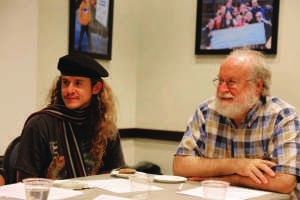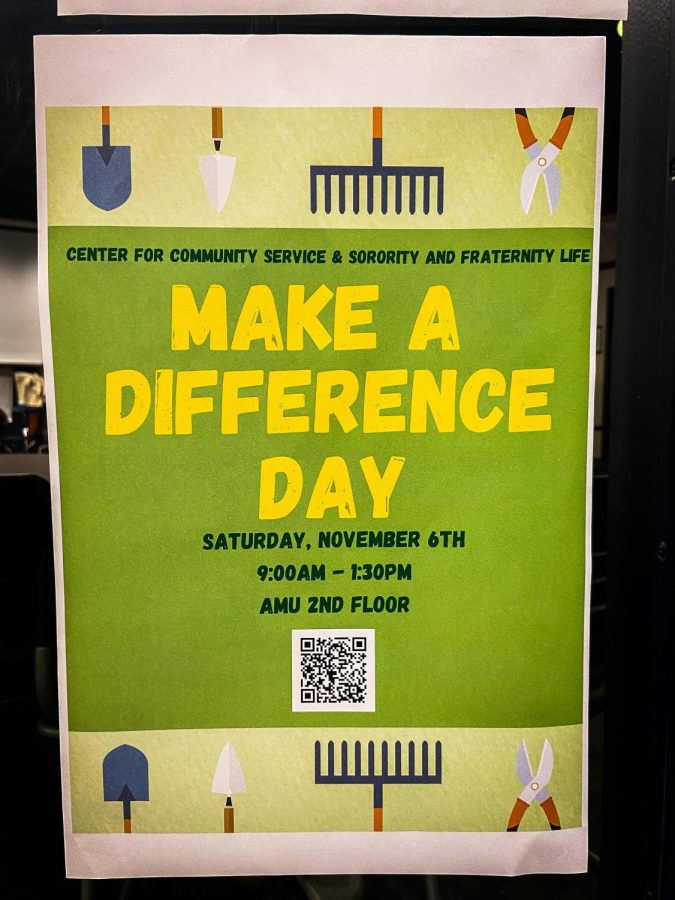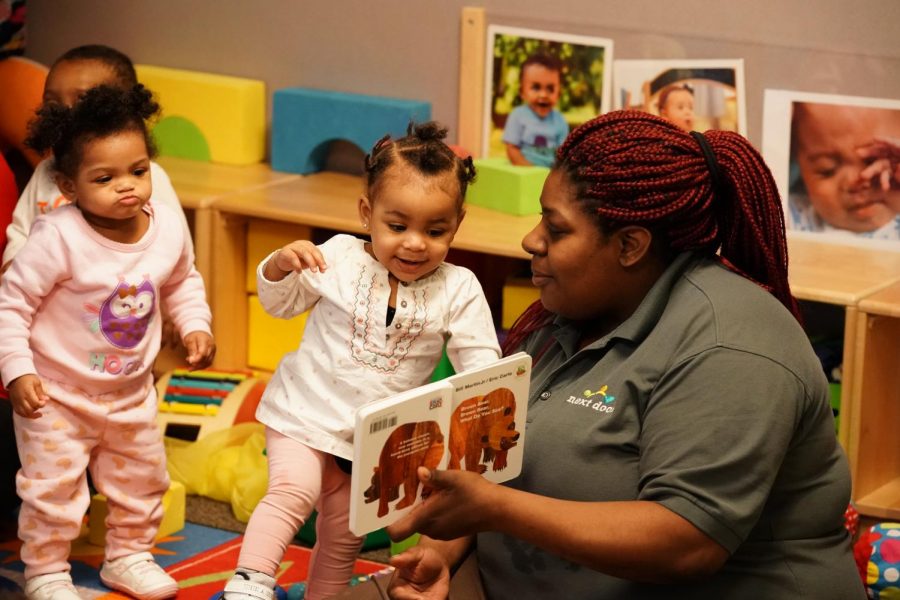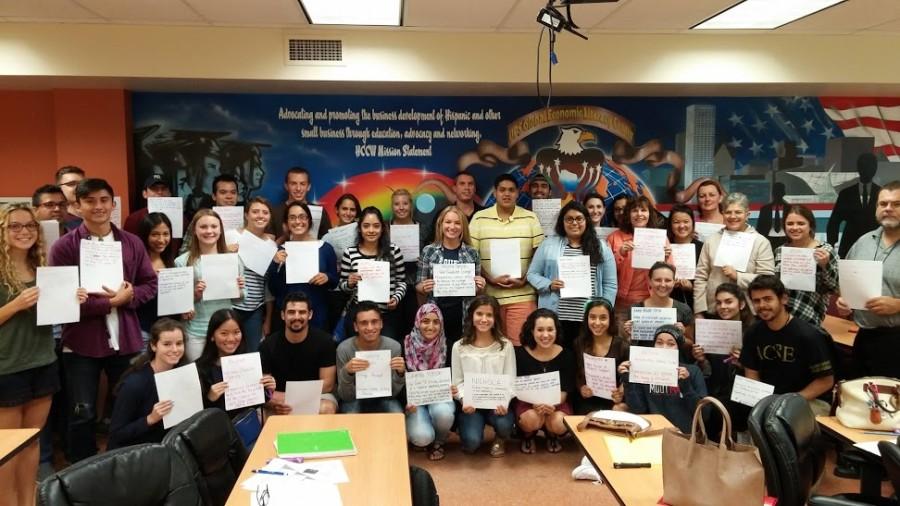
Members and staff from the Grand Avenue Club came to Marquette to share the impact of mental illness on their lives in the second “Meet Milwaukee” event from the Center for Community Service.
Rachel Forman, executive director of the GAC, opened the panel with a brief explanation of how she started the club in 1991 with the requirement that membership would be completely voluntary. The club provides a safe and supportive atmosphere where people with mental illnesses receive resources and support to become contributing members of society.
“We’re talking about a human situation that is very painful for people who are in the middle of it and don’t have resources,” Forman said. “We hope that people will wake up in the morning with a sense of meaning and a sense of purposefulness, because that … is a basic human need.”
The rest of the panel was comprised of GAC members Dave Hanson, Grenesha Reed and Hugh Swofford, in addition to artist-in-residence Coleen Kassner. Each suffered from some type of mental illness that varied in severity. They took turns openly sharing the situations that brought them to GAC and the struggles they faced against stigma surrounding their illnesses.
“There would be more attempts of suicide, some ending with my looking down the barrels of multiple guns being held by police officers who were screaming at me to drop the knife,” Reed said. “Then I’d wake up in the hospital and see the doctor pulling Taser studs out of my body, but I still would not be able to open my eyes because of the burning from the pepper spray.”
Despite reliving emotions of their past for students in the audience, each of the panelists expressed they were confident about who they have become from being a member of GAC. Many members are enrolled in courses at Milwaukee Area Technical College, University of Wisconsin-Milwaukee and Marquette. Forman pointed out that together, they earn over $1 million in taxable revenue from their work in the community.
“Had I not had the club to help me, I would not be where I am,” Hanson said. “They taught me that I could be myself. That I can speak openly about my mental illness if I want to. I don’t have to hide behind any mask or pretend to be someone I’m not. It’s one of the best learning experiences I’ve ever had.”
Kelly Walker, the center’s coordinator for student community service programs, was happy with how the event went and was glad to see a strong turnout. Many students stayed after to inquire about volunteering opportunities or to thank the panelists. Forman made clear the multitude of ways Marquette students can get involved, including donating to internships and field work.
“The whole purpose of ‘Meet Milwaukee’ is to break … barriers and take away that opaque glass between us and them,” said Jessica Ayala, program assistant for the Center for Community Service. “It’s something like this that tells us that it’s okay to get involved and it’s okay to be with those in need.”



